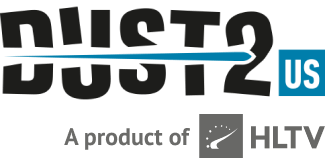
stunna: "I didn't know that management would be the route I took"
You have had a lot of phases in your career. You were managing for a while, then you were doing work at Esports Arena, and content work. Now you’ve been doing talent work, how has the evolution transpired and where do you see that going in the future?
I managed the Cloud9 guys for about three years, if you count the compLexity days too. Ultimately, when I got out of the Army and decided to jump full on into esports, I didn't know that management would be the route I took. In fact, when I first started in esports it was doing play-by-play before any of these big streaming platforms existed. Since the managing days have come to a, dare I say, close (because you never know), I started to work with Esports Arena on a few different projects like Put Up or Shut Up.
After that, [talent work] just ultimately started to overtake my schedule. It was something that I didn't anticipate to find a livelihood in, but I definitely do enjoy this. It’s fun, and more importantly the camaraderie that I get with this really reminds me of working with a unit and I like that a lot; some people thrive under those conditions, some people are better off solo and excel in that environment. So for now, yes, I'm enjoying doing this and I will probably continue to do this for the foreseeable future, but that's not to write off working in teams, leagues etc.
How is active is your role within the GX roster?
When I first started working with them, I set up an infrastructure and said "Hey, here's how you can do your scheduling, how you can do this." It was something where I wanted to help my friends out, some guys that I have known throughout my duration in CS:GO. Braxton "swag" Pierce was one of the first players I worked with coming back into the game, in the compLexity days.
Within GX itself this wasn't exactly "Hey we’re going to jump into an organization and we’re going to do this and that." Instead we are going to be a standalone component and we’ll have the bare necessities. I helped them create an infrastructure, a way they could sustain themselves for the most part, and helped them with booking scrims. Ultimately being their big brother.
What do you think the future holds for GX after their performance this weekend?
Unfortunately, the lineup is making some adjustsments. I've seen people saying that GX "struggled" at MDL, and that isn't quite an accurate portrayal of what happened there. While an 0-6 doesn't lie, it certainly does not accurately tell the story of what was going on behind the scenes during the event. I think the season ending the way it did was very disappointing to say the least, but its better to get a team and players in place within a system that works rather than getting smoked through a whole season of EPL.
What do you think of this event as a whole, bringing this interesting mix of teams that don’t really have the opportunity to play each other very often?
The big thing that sells me on MDL is the fact that it is a very proven way to climb up the ranks and an opportunity to showcase yourself. I think the leagues purpose is very good overall and I think that a lot of the eyes are going to be on some of these guys coming out of this event — whether they stay in their teams or not. This was a good way to say "Well this is a storyline, this is a player I can now follow because he is hot stuff right now, he’s upcoming and working towards it."

You mentioned these leagues giving players an opportunity to showcase themselves, so what do you think about the new ESEA change not allowing players under the age of 16 to play in MDL?
Here's the thing: esports and traditional sports are different for many reasons, including the fact that players in esports can start out young and find a lot of success at a younger age than compared to traditional sports. To say someone is too young to play has some merit; I can see the reasoning behind both sides of the argument. On one hand I think it’s great if a young player can be really good at the game and compete on the professional level, but at what cost? You can look at issues like legalities, you can wonder if it is healthy for a 12 or 13 year old to be playing at the high level and putting things aside that are important in life at that age.
If you make it to the Pro League here and you’re 12 or 13 years old and your parents are behind you, the odds are you might say “I’ve got this going for me, why should I finish high school?” That's a huge problem for me. When Jake "Stewie2K" Yip joined Cloud9 he hadn’t finished high school yet and I stayed on him telling him that he needs to finish high school, there's no way around that one, and he did it. I don't think that finishing high school contributed to his career but it's an important part of growing up where you go through high school and get that social experience. I don’t think there should be a way around that.
mCe from SoaR has told his players that if they drop from high school he will kick them from the team, what do you think about that?
The issue here is that there is no clearing house like the NCAA that ensures everyone meets the minimum eligibility requirements to play. There is no governing body that has a broad oversight in esports. It creates this void where lines can be blurred and the rules are almost left up to the parents’ or tournament organizers’ discretion.
What do you make of some of the bigger tournament organizers such as ESL and DreamHack allowing these match-fixing and VAC banned players back into competition?
I have always stood behind the idea of letting the match-fixing banned players play again as they have been punished and served their time. The punishment doesn’t seem to fit the crime in this situation. Valve seemingly is either not communicating any further or maybe they just don't care and hope it gets swept under the rug. In the big picture though, this is Valve’s game and their property, and in theory they don’t owe an explanation any further than they have given so far. For whatever reason it is, I think that these players have served the time they needed to serve and have been made an example of. The question of whether they will ever play in a Major again, I’d say unfortunately probably not. On the other hand, cheaters getting to play again? No way, Jose.
You have seen the industry and Counter-Strike from all of these different perspectives, so for 2018 what is the biggest change we can make in to close that gap between the NA and EU teams?
Well I think even in the years of 2016 and 2017 North America has made a showing. This meme can just die now, it seems almost embarrassing at times we see in chats saying "EU is better than NA" even when the top North American teams have come on par with their counterparts on the other side of the Atlantic. So for whatever it's worth, 2018 is going to be a huge year for a couple of different reasons but definitely with respect to Counter-Strike. This year is going to be a year that needs all organizers and all top-level entities to come together, because in my mind this is the year that can set the tone for the game’s future. It’s do or die time. Counter-Strike is a game that has a life based on what we make of it and that’s what Valve has given to us. It's our responsibility, and it will require a lot of working together to give this game longevity.

So what makes you say that it's do or die time? Is it the impending launch of the Overwatch League?
The Overwatch League is obviously a big deal, there's a lot riding in big picture esports on it. We are just at the point where we need to have more of a concrete plan for the future. I mean when I heard that organizers have an actual event calendar, they can sit back and say "this is our week", that's a step in the right direction, but is it enough? Probably not. I think there is more that can be done.
What would some of those changes be?
We can start by looking at some of the roster transactions that are seemingly uncontrolled, there is no governing body to provide oversight. Then you can look at trade deadlines, you can look at a particular off-season but the problem with that is that it can’t exist in this atmosphere, I think that with all the different organizers, it is set up in a way where it's a dog-eat-dog world right now. Which can be great for some but not others. Is it sustainable in the long run? I will side with probably not.


























